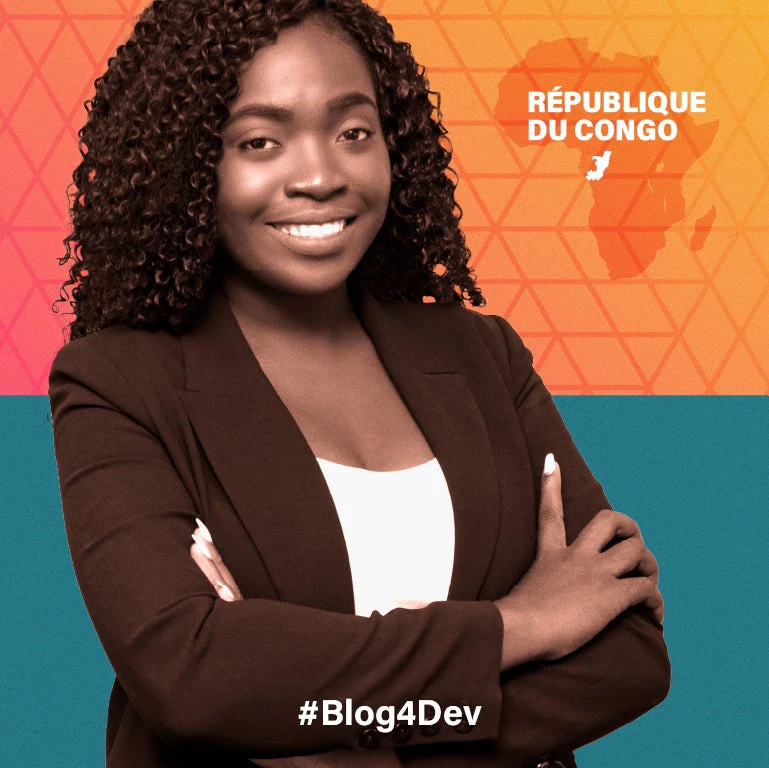 Exaucée Wonga, lauréate du concours Blog4Dev de la Banque mondiale en République du Congo
Exaucée Wonga, lauréate du concours Blog4Dev de la Banque mondiale en République du Congo
Sub-Saharan Africa has one of the highest rates of child marriage in the world and the Republic of Congo is no exception. According to the most recent data of the United Nations Population Fund (UNFPA), 27% of young girls in the Republic of Congo got married before age 18 between 2006 and 2017.
Currently, it is of vital importance to work toward a reduction of this rate.
To this end, I am proposing these solutions:
- Educating Households
Among the reasons for the early marriage of girls in the Republic of Congo are tradition and social culture. In our societies, women in certain places are still seen as the ones who should be at home and they are not sufficiently encouraged to see themselves as playing an active role in their choices and their own happiness. Awareness will have to be raised among Congolese families and parents will have to be convinced of the dangers of child marriage. This entails a kind of cultural battle aimed at promoting gender equity and equality that, although mentioned in the constitution, is not always emphasized. The first step will have to be taken—namely, allowing mothers to teach their daughters to assume responsibility for their choices and teaching fathers not only to provide encouragement to their daughters but also to instill in their sons respect for the role of girls.
- Providing Support throughout the School Years
As poverty is one of the reasons behind child marriage in the Republic of Congo, girls should be encouraged to study. They should be supported throughout their primary and secondary education years. Some girls opt to get married early because they think that they do not have many choices in life.
Young girls who are not educated very soon find themselves in a position of need and sometimes have no alternative but to move in with someone or get married in order to meet their needs and the needs of their families.
An educated young girl is better equipped to handle the social and family pressures that influence her decisions and would have better opportunities and social status conferred by work that would pave the way for her personal development.
- Organizing Sex Education Campaigns
In Congolese culture, when a pregnancy occurs outside of marriage, the girl is turned over to the person who impregnated her, which often leads young girls to move in with someone and get married very early. Sex education targeting young girls and young boys would prevent a large number of early pregnancies. While there are currently many international organizations, NGOs, and foundations working to achieve women’s and girls’ well-being and education, this is still not enough.
- Creating Safe Spaces
Young girls also need spaces where they can express their fears and share their problems with persons who can understand their daily lives and what they are experiencing, so as to suggest solutions suited to their situations.
- Imposing Tougher Penalties
Although child marriage is legally prohibited and punishable by imprisonment, the practice persists. The State has a duty to ensure enforcement of these laws and to establish penalties to discourage and prevent possible cases of child marriage.
In short, several members of society must pool their efforts to lower the rate of child marriage. These efforts will also expand Africa’s workforce and yield benefits. By joining the working world, these women of tomorrow will contribute to their country’s development and improve the living standard of their families, particularly in the poorest areas.


Join the Conversation